Saturday, July 14, 2012
1981-82 SC Dynamo Berlin Dietmar Peters Jersey
July by the Numbers travels behind the Berlin Wall for jersey #14.
The Sports Club Dynamo Berlin was founded in 1954 and was a training center for the sports club of the Ministries of Police and State Security, more commonly referred to as the Stasi secret police, the German equivalent of the Soviet KGB. One of the clubs formed as part of the sports club was a hockey team, known as SC Dynamo Berlin.
They competed in the East German Oberliga, as Germany had been divided into the Federal Republic of Germany (West Germany) and the German Democratic Republic (East Germany) in 1949 following World War II.
Dynamo Berlin would compete for 18 seasons before winning their first championship at the conclusion of 1965-66, breaking the dominance of SG Dynamo Weißwasser, who had won 15 consecutive titles in the 18 year history of the league up to that point.
Dynamo Berlin would then win the next two titles in 1967 and 1968 to complete a hat trick of championships.
Three seasons later, the Oberliga would be reduced to a mere two clubs, SC Dynamo Berlin and SG Dynamo Weisswasser, from 1970-71 through the demise of the league with the reunification of East and West Germany in 1990.
At it's peak, the East German Oberliga had eight teams as recently as 1968-69, but hockey was no longer a priority in East Germany and the league shrank to four teams in 1968-69 and 1969-70 before funding for all but the two surviving clubs was discontinued abruptly in 1970, reducing the league to just two teams, the smallest ice hockey league in the world.
The thinking at the time in East Germany was that following it's last place finish in hockey at the 1968 Olympics, the country should focus on individual sports, as a single track and field athlete, swimmer or speed skater could produce multiple gold medals at the Olympics, while team sports like water polo or hockey required many players, special facilities (such as pools and skating rinks) and special equipment all resulting in higher operating costs - all for the sake of winning just a single medal. This thinking resulted in ice hockey being relegated to Class 2 status by the East German sports federation. The result was East Germany never appearing in another Olympic hockey tournament and the immediate reduction in funding for it's domestic hockey league.
With a 50-50 chance at the championship in the two team league, which survived the funding cuts only because the head of the Stasi, Erich Mielke, was a an avid hockey fan, Dynamo Berlin won five titles from 1976 to 1980 and another seven in a row from 1982 through 1988 for 12 out of a possible 13.
The 1975-76 Dynamo Berlin team which started their dynasty of 12 titles in 13 seasons
With the reunification of Germany in 1990, both Dynamo Berlin and the renamed PEV Weisswasser were assigned to the 1. Bundesliga, the highest level of hockey in Germany, with Dynamo Berlin being renamed EHC Dynamo Berlin.
The level of play demonstrated by the former West German clubs proved to be too much for Dynamo Berlin and PEV Weisswasser, as they were forced to meet to determine which club would be relegated to the lower 2. Bundesliga for the 1991-92 season, with Dynamo Berlin coming out on the short end by being swept in three straight.
The team was struggling financially while adapting to life in capitalist, reunified Germany and often finished near the bottom of the standings, but managed to stave off relegation while serving as a rallying point for it's fans from the former East Germany, who were regularly taunted by former West German fans, who never failed to portray themselves as more cosmopolitan and more superior than the "have-nots" from the East. The fans of Dynamo embraced the team and their East German roots, chanting "Ost-Ost-Ost Berlin" (East-East-East Berlin) at games, refusing to be made to feel bad about who they were and where they came from.
It would only take one season of play for Dynamo Berlin to earn their way back to the top level, which began a new era for the club, as prior to play in the 1. Bundesliga for 1992-93, the team was renamed ECH Eisbären Berlin (Berlin Polar Bears) to distance itself from the name Dynamo, which only served to remind everyone, sponsors in particular, of it's Stasi past,
The first team officially named Polar Bears, the 1993-94 club, although they had been using the polar bear logo for a couple of years already
In 1994, the Bundesliga was abolished and replaced by a new league, the Deutsche Eishockey Liga (DEL), with Eisbären being one of the 18 founding members. In 1995, the landscape of professional sports in Europe was changed forever with a ruling that granted players free movement from not only one team to another, but to any other country when their contract expired. Eisbären took full advantage of the new rules and replaced nearly their entire roster with veteran European players, ushering in a new era of competitiveness.
The finished in third place in 1996-97 and advanced to the DEL playoffs for the first time. The following season they made it to the DEL Finals and also participated in the Continental Cup, finishing second and in 1998-99, they finished third in the European Hockey League.
They team was purchased by the Anschutz Entertainment Group (AEG, owners of the Los Angeles Kings of the NHL, Djurgårdens IF in Sweden and the Hamburg Freezers, also of the DEL) in 1999, which gave them a strong financial footing. Their popularity rose, and sellouts became the norm in the early 2000's. After missing the playoffs for two seasons, the club reached the quarterfinals in 2002, the semifinals in 2003 and reached the finals in 2004.
With the 2004-05 NHL season lost due to the lockout, the Polar Bears took the opportunity to sign NHL veterans Erik Cole, Nathan Dempsey and Olaf Kölzig, who helped the club capture their first championship in the reunified Germany when they defeated the Mannheim Eagles in the finals.
That success was a springboard for a new era of dominance, as the club has now won DEL championships in 2006, 2008, 2009, 2011 and 2012, their sixth in eight years.
The 2011-12 DEL champions, Eisbären Berlin
Their run of success allowed the club to move out of the 4,695 capacity (3,000 of which were standing room) Sportforum Hohenschönhausen on the eastern side of the city, their home since 1963 and derisively known as "The Corrugated Tin Palace", a holdover from the communist past, and into the brand new O2 World arena in 2008, which boasts a seating capacity of 14,200 and is in the city center, practically on the site of the Berlin Wall, it's site chosen by AEG for it's neutral location in order to attract fans from both sides of the city - a far cry from the days of a two team league endlessly playing each other, and only each other, in front of a meager 500 fans.
The central location of the arena was also essential for uniting the fans in all of Berlin following the collapse of the rival Berlin Capitals, which was founded in 1983 and ran into serious financial problems in 2002 and folded in 2005, leaving the Polar Bears as the only team in Berlin, in addition to being the only DEL team located in the former East Germany.
Today's featured jersey is a 1981-82 SC Dynamo Berlin Dietmar Peters jersey from the club's first championship of their record setting seven consecutive titles won throughout the 1980's. This jersey is essentially a duplicate of the white New York Rangers jersey, first introduced back in 1951 and used through 1976 before being brought back again permanently in 1978-79, only with the obvious use of a Dynamo Sportclub crest and the distinctive European block font with a drop shadow for the numbers.
Dietmar Peters, a defenseman, began play with SC Empor Rostock and when that club was dissolved with the reduction in the number of clubs to two, he joined SC Dynamo Berlin in 1971, continuing to play for them for 15 seasons, which included winning nine championships.
He came out of retirement in 1999 to play for the Saale Bulls in the lower ranks of German hockey at the age of 49, playing an additional three seasons before his second retirement. He also played for the national team 315 times, the most appearances in East German hockey history.
Bonus jersey: Today's bonus #14 jersey is a 2011-12 Berlin Polar Bears Stefan Ustorf jersey. This red jersey was the team's alternate jersey in 2011-12 to go with their black home jersey and their white away jersey and illustrates the evolution of hockey jerseys over the last 30 years when compared to it's 1981-82 predecessor, which was completely devoid of player names or sponsorship logos so prevalent in European hockey today.
Today's video section is the fans of Eisbaren Berlin chanting Ost-Ost-Ost Berlin at a game at the new arena.
Labels:
Dynamo Berlin
Subscribe to:
Post Comments (Atom)

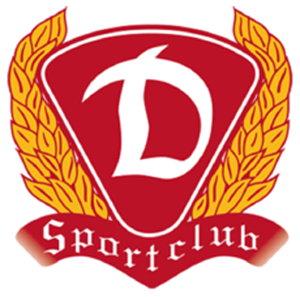
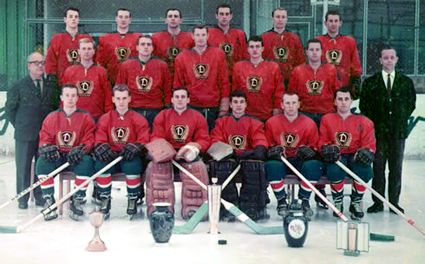
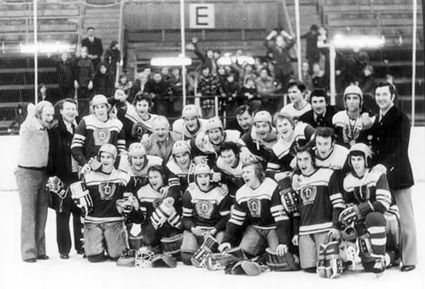
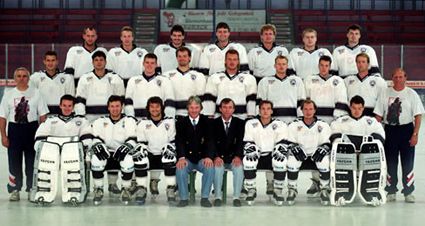
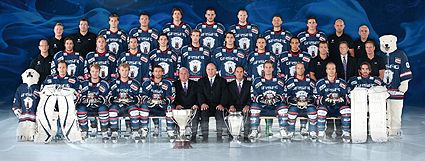
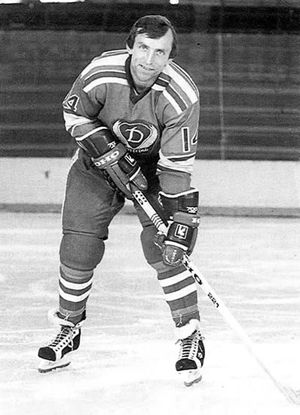
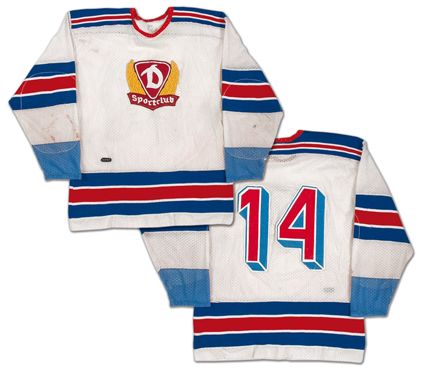
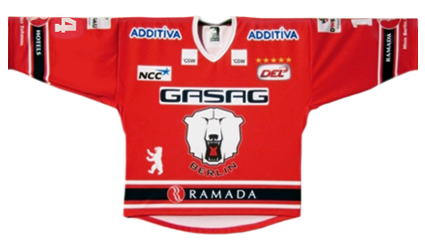
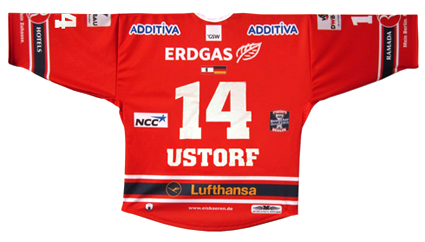










No comments:
Post a Comment
We welcome and encourage genuine comments and corrections from our readers. Please no spam. It will not be approved and never seen.